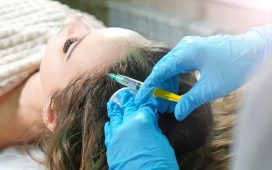In the aftermath of an abortion, it’s essential to prioritize your physical and emotional well-being. Post-abortion care is a crucial aspect of the process, providing the necessary guidance and support to ensure a smooth recovery. By empowering yourself with knowledge and accessing the right resources, you can navigate this journey with confidence and take control of your health.
Understanding the Importance of Post-Abortion Care
Post-abortion care encompasses the medical, emotional, and practical aspects of recovery following the termination of a pregnancy. It’s not just about addressing the immediate physical needs but also supporting your mental and psychological well-being. Engaging in post abortion care can help you manage any potential complications, process your emotions, and regain a sense of control over your life.
Addressing Physical Needs
The physical aspects of post-abortion care involve attending to any medical concerns that may arise. This may include follow-up appointments with your healthcare provider to ensure proper healing, monitor for any complications, and address any lingering physical symptoms. It’s important to adhere to any instructions provided by your healthcare team, such as taking prescribed medications, resting as needed, and avoiding certain activities during the recovery period.
Navigating Emotional Healing
Abortion can be a complex and emotionally charged experience, and the post-abortion period is often marked by a range of feelings, including relief, grief, guilt, or even ambivalence. Post-abortion care should also address your emotional and psychological needs. This may involve seeking support from a mental health professional, such as a therapist or counselor, who can provide a safe space for you to process your emotions and develop coping strategies.
Accessing Supportive Resources
One of the most empowering aspects of post-abortion care is the availability of supportive resources. These can include online forums, support groups, hotlines, and educational materials that provide valuable information and a sense of community. Connecting with others who have experienced similar situations can help you feel less alone and provide a network of understanding and validation.
Considering Long-Term Self-Care
Post-abortion care extends beyond the immediate recovery period. It’s essential to incorporate long-term self-care practices into your routine to promote your overall well-being. This may include engaging in activities that nourish your mind, body, and spirit, such as exercise, mindfulness practices, or exploring creative outlets. Additionally, it’s important to prioritize self-compassion and avoid engaging in any self-judgment or criticism during this time.
Navigating Insurance and Costs
The financial aspect of post-abortion care can be a concern for many individuals. It’s crucial to understand your insurance coverage and explore any available options for financial assistance. Many healthcare providers and organizations offer sliding-scale fees or payment plans to ensure that post-abortion care is accessible, regardless of your financial situation.
It’s important to be proactive in researching your options and advocating for your needs. Don’t hesitate to reach out to your healthcare provider or local organizations to inquire about financial support or to negotiate payment plans that fit your budget.
In Conclusion
Post-abortion care is a vital component of the journey, empowering you with the knowledge and support necessary to navigate the physical, emotional, and practical aspects of recovery. By prioritizing your well-being, accessing the right resources, and practicing self-compassion, you can reclaim your autonomy and pave the way for a fulfilling and empowered future.







